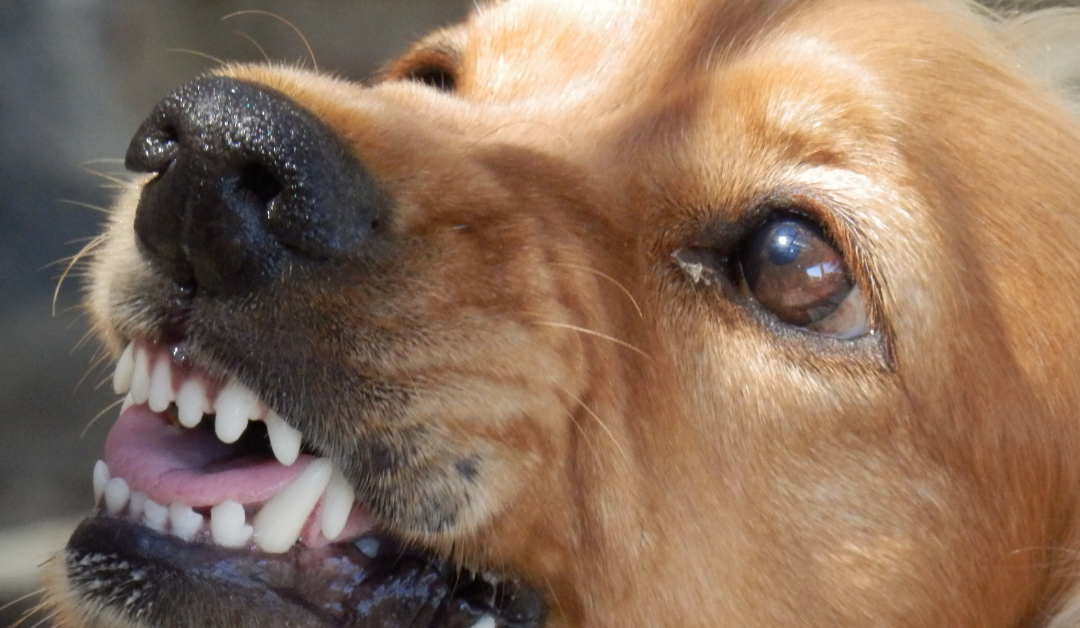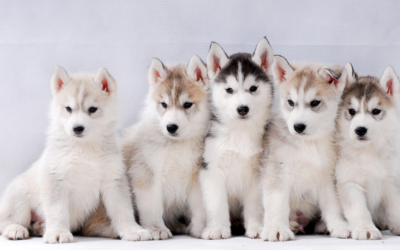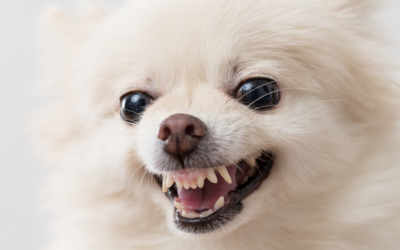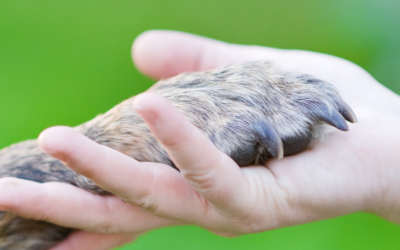Dog Aggression
Why would my dog become aggressive?
When you identify aggression in your dog the first thing that you should do is visit your vet for a general examination, explaining what you have experienced. Any dog that is being referred to us for aggression rehab has to be examined by the vet and have any medical issue ruled out. Often aggressive behaviours can be a result of a pain response, this is most frequently seen when the aggression appears suddenly and without any prior indications.
Most aggression whether directed towards the handler or an external stimulus like people or other dogs normally comes from fear. There are very few dominant aggressive dogs.
As such, if you can recognise these fear responses in your dog when they are younger and realise that some of these behaviours are fear based you will be better placed to understand the potential outcomes.
Some of these fear based responses may lead to aggression. You may see uncertainty in your dog who is barking at strangers or barking at other dogs. This can develop into different aggression based responses when the dog becomes older.
Those dogs who look truly aggressive when they’re older are still responding from an origin of fear. The difference in the older dog is that they have developed learned behaviours and coping mechanisms around aggression. They have often now become competent and proficient in the use of aggression to control their environment, however it still stems from the same place.
In the early days when you first bring your puppy home, the initial rearing, care and training of your young dog is essential to ensure issues do not develop. What you may perceive to be your young dog being silly and barking at other dogs may potentially grow into a problem in your adult dog. When your 6kg puppy is barking at other people in the street it’s amusing but when your dog is 40kg and has teeth 5cm long it will be a bigger problem for you and for those around you!
The key is in recognising that when your dog is young there are behaviours which could develop into aggression:
- Fear of strangers
- Fear of other dogs
- Fear periods and startle responses
- Resource guarding either human or food, toys, crates, vehicles or anything else the dog feels entitled to possess
It’s therefore of paramount importance that new dog owners don’t treat their puppy like a baby and recognise that these things may potentially be an issue. It’s important to deal with these factors when your dog is just a young puppy or adolescent dog rather than wait until he has developed into a proficient adult and uses aggression against the handler.
If it’s identified early and dealt with early it can be very simple to block the behaviour and use positive reinforcement to help the dog develop different choices of coping mechanism.
handler aggression
human aggression
Handler aggression can grow from resource guarding or can also come from re-directed stress and aggression towards people externally.
In these cases it’s possible for the dog then to see that they can control the handler’s behaviour with use of aggression and use this as a method of controlling their environment.
making good choices
We are more commonly now being contacted by potential clients who have made inappropriate choices in selecting a breed/type of dog which is mismatched to their lifestyle. E.g. Most working breeds…Dobermann, German Shepherd, Malinois, Dutch Herder.
The dog has no suitable outlet for their drives and will then begin to engage in unwanted behaviours. They often begin to guard, become destructive and display possessive and aggressive behaviours.
Choosing the appropriate breed for your lifestyle and ensuring an outlet for the genetic predisposition is essential.
is there any acceptable aggression?
We see a dual standard around dog aggression, whether towards people in the home or externally. Some people have a small dog like a Jack Russell Terrier, other terrier or small breed dog and their behaviour is outrageous and aggressive – attacking children, people in the household and other dogs.
This is generally overlooked and physically managed by the owner but rarely directly addressed and it is not viewed by others in the same way that they would a larger breed. Smaller dogs are allowed to behave wholly inappropriately.
All dogs should behave whether in public or private, but the owners of these smaller dogs seem oblivious to the fact that their dog may in fact trigger aggressive responses in other larger dogs.
inappropriate behaviour from owners
It’s important as dog owners that we provide leadership, trust and safeguarding of our dogs. Failure to do so can often result in a dog displaying aggressive behaviours seemingly ‘out of the blue’ when infact it’s due to poor household management.
If your dog has been stable in your home for a period of time and all of a sudden behaves aggressively this can often be due to younger members of the household and/or children behaving inappropriately towards the dog.
Oftentimes the view of dog owners is that the family dog should tolerate the inappropriate behaviour of children and young people without reacting. Many dogs are therefore put to sleep due to the mismanagement of the owners.
Please please please, teach your children how to interact with dogs in an appropriate manner and keep your dogs safe and under control at all times.
why does my dog growl?
Growling is a communication mechanism used by a dog often as a precursor to biting someone and indicates that he is unsure or unhappy. When any physical punishment is administered for growling then you make it worse by confirming that the dog is right to be afraid.
Growling can also be pain related, fear based, stress related or indicating feeling trapped and cannot evade the situation e.g young people or children. Dogs can also growl in play when they’re enjoying themselves!
Growling cannot be looked at in isolation. To evaluate the situation you need to look at the dog’s body language.
can an aggressive dog be cured?
There can be no guarantees but very often, yes they can be.
why is my dog aggressive to some dogs and not others?
Dogs operate entirely on body language. In the same way that some people don’t like other people then dogs may also be selective about who they are friendly with. This is entirely natural.
Should I just let two dogs ‘work it out’?
Some people believe that as dogs are pack animals, when two dogs are posturing or having an altercation that they should be left to ‘work it out’. We must remember that any dog that your dog meets in the street or park is not part of his family unit. In a pack environment it’s in their interest to rely on each other and not kill each other as the following day they will need each other to co-operate to hunt. When they meet a member from another pack then the rules are entirely different. Fights between dogs who do not know each other can be very damaging to all concerned often resulting in the death or serious injury of one dog.
Under no circumstances would any of our trainers encourage dog owners to take their dogs to a public place and allow loose dogs to interact with their pets. This is a common source of dog aggression development in a young dog or puppy.
Good luck!
Hopefully this guide has given you some basic information on dog aggression and communication. We are also available to support any difficulties you are having.
You May Also Like…
How To Find The Right Dog Trainer
How To find the right dog trainerChoosing the perfect dog trainer is crucial for the happiness of your dog and your...
Why Does My Dog Growl At Other Dogs?
Why Does My dog growl at other dogs?Growling can appear to be an aggressive behaviour that may be upsetting and even...
Leadership & Relationship
how can i be my dog's leader and develop a great relationship?Leadership is recognising and honouring the fact that...





